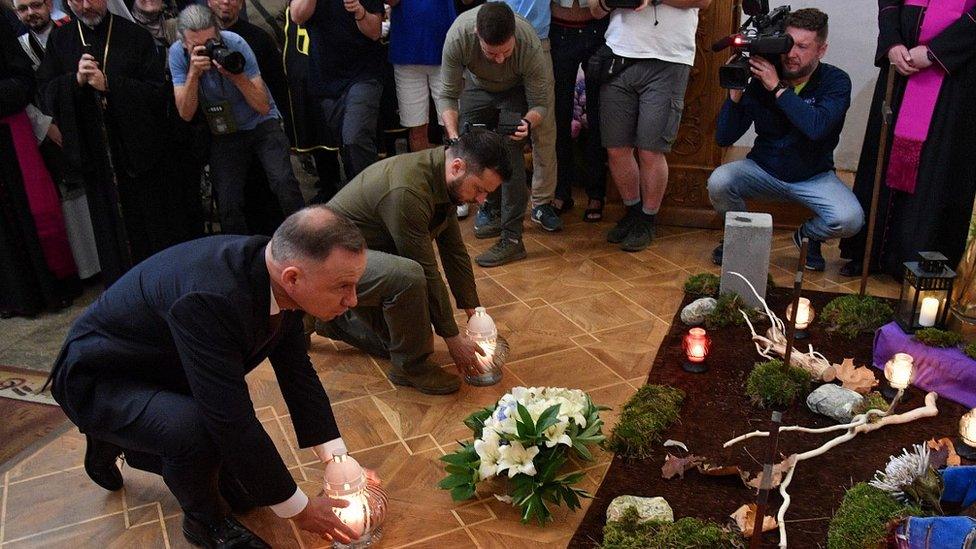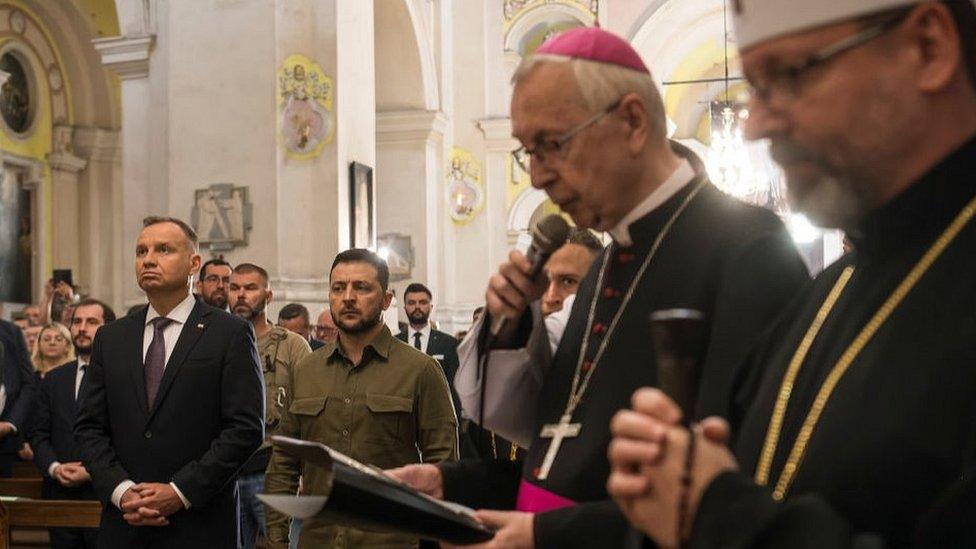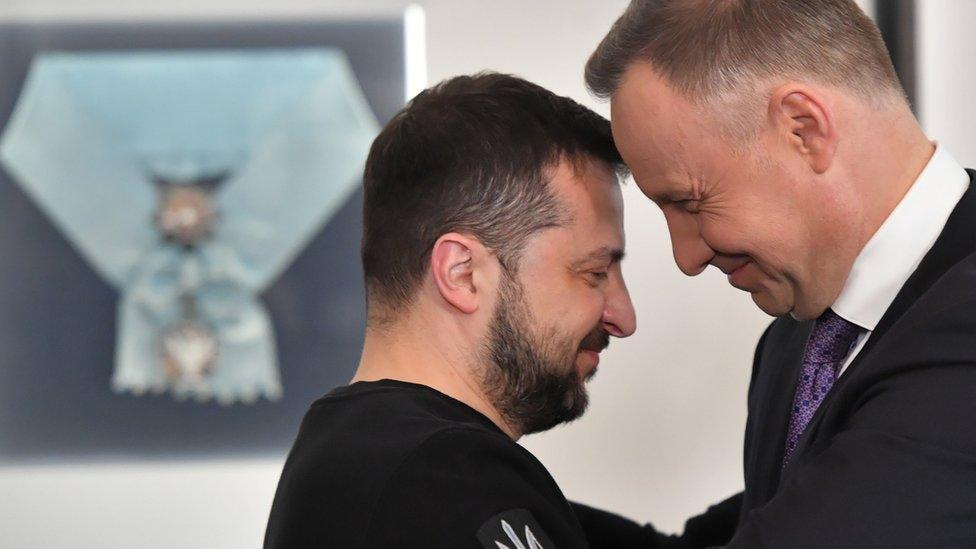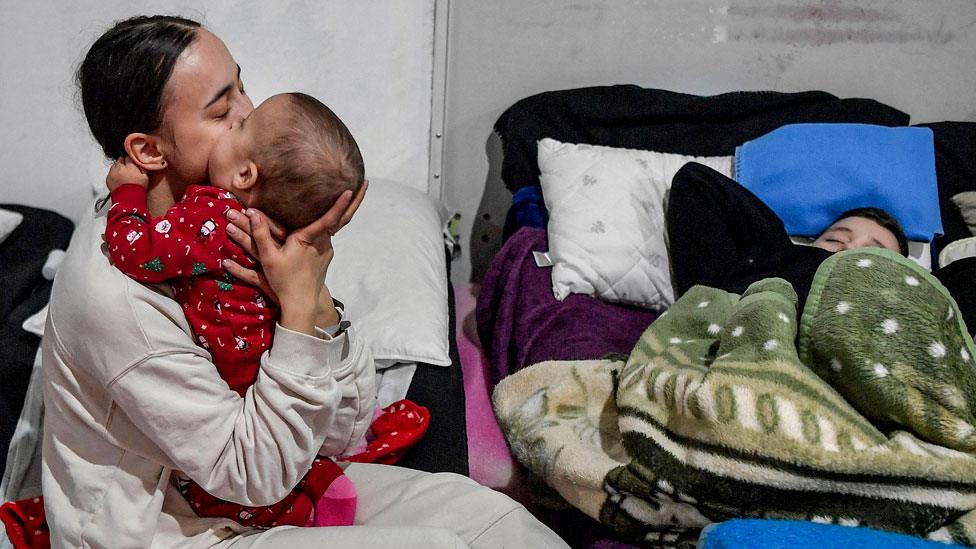Zelensky honours Poles killed by Ukrainians in WW2 Volhynia massacre
- Published

The joint commemoration was a highly symbolic reconciliation gesture
Ukraine's President Volodymyr Zelensky and his Polish counterpart have jointly commemorated the Poles murdered by Ukrainian nationalists in the 1943 Volhynia (Volyn) massacre.
In a Catholic cathedral in western Ukraine, Mr Zelensky and President Andrzej Duda placed candles to honour the tens of thousands who were killed.
Poland is one of Ukraine's closest allies against the Russian occupation.
But the Volhynia slaughter remains a dark cloud in their relations.
The Ukrainian nationalists, led by Stepan Bandera, operated in German-occupied Poland during World War Two and many collaborated with the Nazis. They attacked about 150 villages, murdering the minority Polish population.
Poland puts the death toll as high as 100,000 and says Ukraine should apologise and ask for forgiveness. The Polish parliament has called the massacre a genocide - a description contested by Ukraine.
The slaughter provoked reprisals from Poles against Ukrainian civilians. At least 2,000 Ukrainians were killed.
The service on Sunday was a highly symbolic gesture of reconciliation, as Russian President Vladimir Putin has repeatedly - and baselessly - branded Mr Zelensky's government Bandera-style "Nazis".
In a joint message on Twitter the presidents said: "Together we pay tribute to all the innocent victims of Volhynia! Memory unites us! Together we are stronger."
On his official website Mr Zelensky also said: "We value every life, remember history, and defend freedom together."
The cathedral service in Lutsk was ecumenical, with both Orthodox and Catholic clergy participating.
Poland is one of the main suppliers of military and humanitarian aid to Ukraine.
It has also taken in about one million Ukrainian refugees since Mr Putin launched the Russian invasion in February 2022.
On Friday Polish Prime Minister Mateusz Morawiecki visited what used to be the village of Ostrowki. He honoured the Volhynia victims by erecting a wooden cross in a field and laying a wreath at a memorial.

President Zelensky (C) emphasises Ukraine's close historical ties to Poland - despite the dark chapters
Update 20 July 2023: This article was amended to make clear that many nationalists who were responsible for the massacre in Volhynia and were loyal to Bandera, had links to the Nazis but were not trained by them,
Related topics
- Published5 April 2023

- Published13 March 2022
